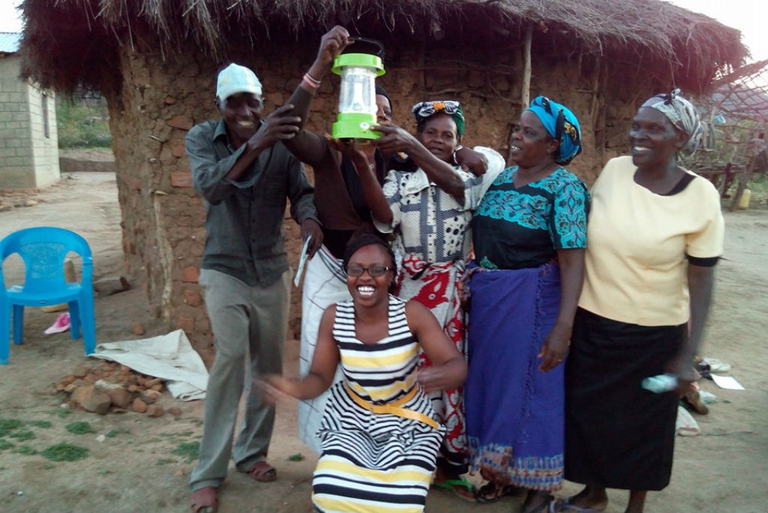
A group of experts in Tokyo suggested pouring radioactive water from Fukushima into the open sea. A marine biochemist explains the consequences of this absurd decision.
A bordo del loro asino, girano i villaggi più remoti per portare energia rinnovabile e pulita a prezzi economici. Migliorando la loro vita e quella degli altri abitanti.
Poverty can (also) be defeated through energy independence. Having night lights, the opportunity of charging electronic devices and storing energy for the night can change lives, literally.
This is what’s happening in some rural villages in Kenya, where more than 200 Maasai women go from one village to another riding their donkeys. They bring solar panels, rechargeable batteries and lighting kits. It’s a real revolution both for women who now have access to economic activities and for the inhabitants of those villages that don’t have access to the national electricity grid.
The project realised by the Green Energy Africa allows Maasai women to sell solar panels, rechargeable batteries and lights at 300 Kenyan shillings (about 3 dollars) per unit. This makes them earn some money to buy other kits, becoming a perfect green economy model.
“For us, the impact of solar technology is unparalleled,” said Jackeline Naiputa, head of Osopuko-Edonyinap, one of the five-women groups bringing energy in the area. Naiputa’s son was forced to stay up at night to protect their goats from wild animals. “Light scares hyenas, so my son is now able to sleep soundly inside,” she told Reuters.
One of the United Nations’ Sustainable Development Goals is ensuring access to affordable, reliable, sustainable and modern energy for all by 2030. Renewables can play a determining role in achieving this goal even if one out of five people currently don’t have access to electricity. Yet, thanks to projects of this kind it is possible to change villages’ lot in developing countries.
Another important environmental aspect has to be considered. The access to technologies like solar energy and energy storage allows ever more people freeing themselves from fossil fuels and firewood. Not only solar power protects forests, but it also improves the health of women and children who often get sick for inhaling smoke.
Being located close to the equator, Kenya has a huge potential in developing solar energy, and Maasai women did understand that.
Siamo anche su WhatsApp. Segui il canale ufficiale LifeGate per restare aggiornata, aggiornato sulle ultime notizie e sulle nostre attività.
![]()
Quest'opera è distribuita con Licenza Creative Commons Attribuzione - Non commerciale - Non opere derivate 4.0 Internazionale.
A group of experts in Tokyo suggested pouring radioactive water from Fukushima into the open sea. A marine biochemist explains the consequences of this absurd decision.
A federal court in Washington, D.C. has struck down the Dakota Access Pipeline, following years of campaigning by the Standing Rock Sioux tribe.
The Scottish island of Eigg is self-sufficient for its energy needs, relying almost entirely on renewable sources, especially thanks to a coordinated community effort.
President Magufuli in unmovable in going ahead with the Stiegler’s Gorge dam despite conservationists’ warnings of the damage it will cause the Selous Game Reserve’s ecosystem and wildlife.
A large dam along the Luangwa River in Zambia would have posed a serious risk to local people and wildlife, leading hundreds of thousands to oppose it. A call to which the government responded by halting plans to build it.
The first one megawatt solar power plant in the Chernobyl exclusion zone has become operational. This is the first step in a renewable energy development project promoted by the Ukrainian government in the area.
A tanker exploded at a gas and petrol station in Nigeria’s Nasarawa state on the 10th of September, killing 35 people and leaving some burned beyond recognition; 3 citizens had several spine and brain injuries, 2 of them are still on Intesive Care Units. Fela Habila , a local singer, is now stable and out of danger but
The largest tidal power plant in the world will be built in the Larantuka Straits. It will serve 100,000 people and help overcome some of the challenges of energy provision in Indonesia.
Robben Island’s solar energy micro-grid project will produce almost one million kilowatt hours of electricity annually, significantly reducing the cost and impact of buying diesel.








